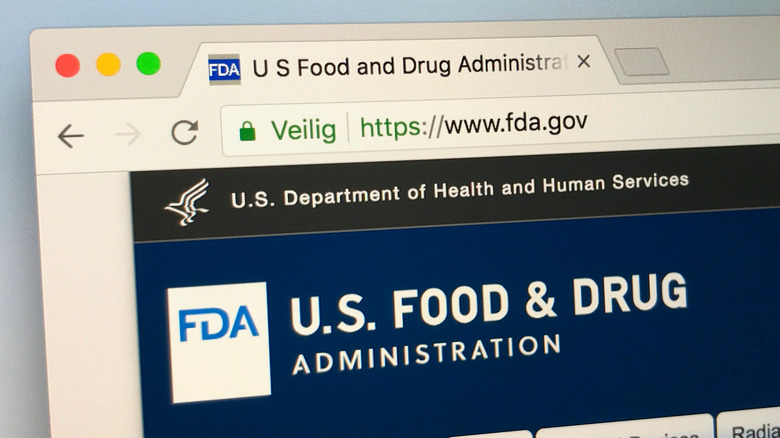Why The FDA's Recall Process Is Coming Under Fire
It's no secret that the various arms of the U.S. government often underwhelm people with their efficiency and response times. The most recent agency to be heavily criticized is the Food & Drug Administration (FDA), which is tasked with "protecting the public health," by overseeing the safety of drugs and the country's food supply, as well as cosmetic products and other items "that emit radiation," among a number of other things, according to the FDA site.
Those are some pretty huge responsibilities, and a number of consumer groups who aren't happy with the handling of the 2022 baby formula recall are in favor of an agency reorganization, so that food crises can be more efficiently handled, per Food Safety News.
This isn't the first time the FDA has been lambasted for its policies and practices. An article in AMA Journal of Ethics notes that the opioid crisis was in part caused by "regulatory mistakes" made by the agency. This is no small matter, either, as the CDC reports that of the more than 932,000 drug overdoses since 1999, 75% of those involved some type of opioid. Given these issues, it's not surprising that some groups feel that organizational change is long overdue.
Why people want the FDA to be reworked
A handful of prominent advocacy groups are behind the push for separating the food section of the FDA into an entirely new arm, says Food Safety News. Those include Healthy Babies Bright Futures, STOP Foodborne Illness, the Environmental Working Group, and Consumer Reports.
Among the complaints, the groups point to the agency's slow and sluggish response to the infant formula contamination situation that has left parents around the country struggling to find sustenance for their babies, saying that the FDA "conducted business as usual" in spite of reports of infant illnesses and deaths potentially linked to consumption of certain formulas.
Detractors are also critical of the agency's commitment to infant food. The group is supposed to be reducing the presence of heavy metals in baby food products, however, 95% still show the presence of these potentially toxic substances, Food Safety News says. In fact, dangerous levels of substances like lead, arsenic, mercury, and cadmium have been found in food products by some major baby food companies, like Gerber, Beech-Nut, Nurture, and Hain, according to Harvard Health Publishing. No word yet on if an FDA reorganization will happen, or how long it will take.

